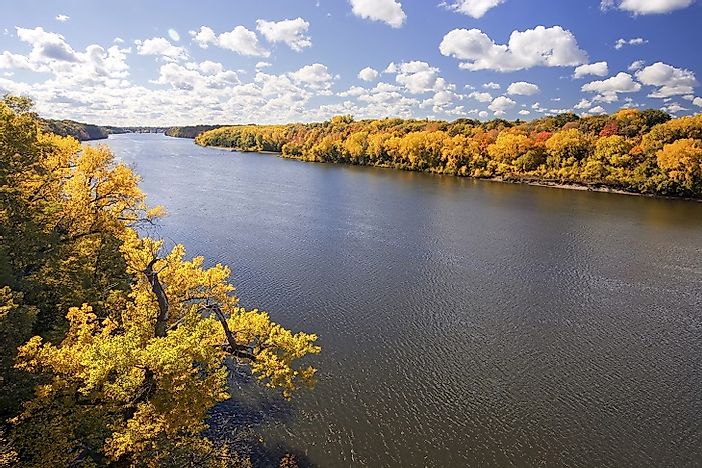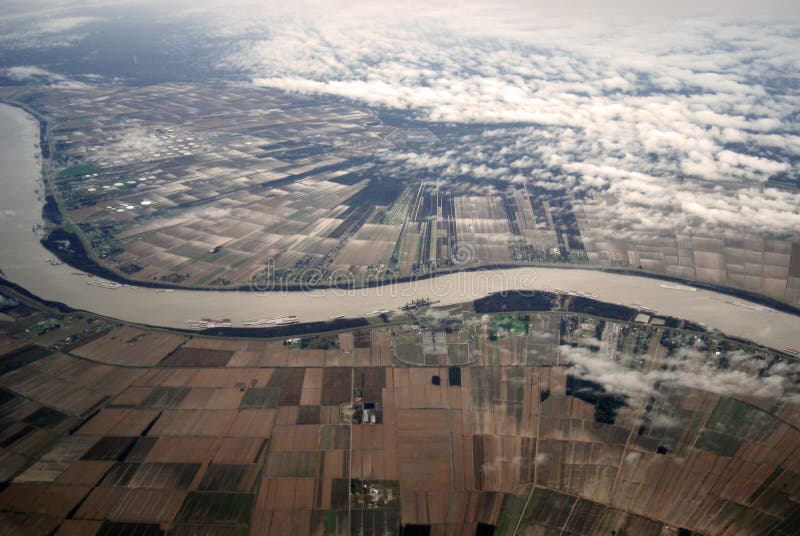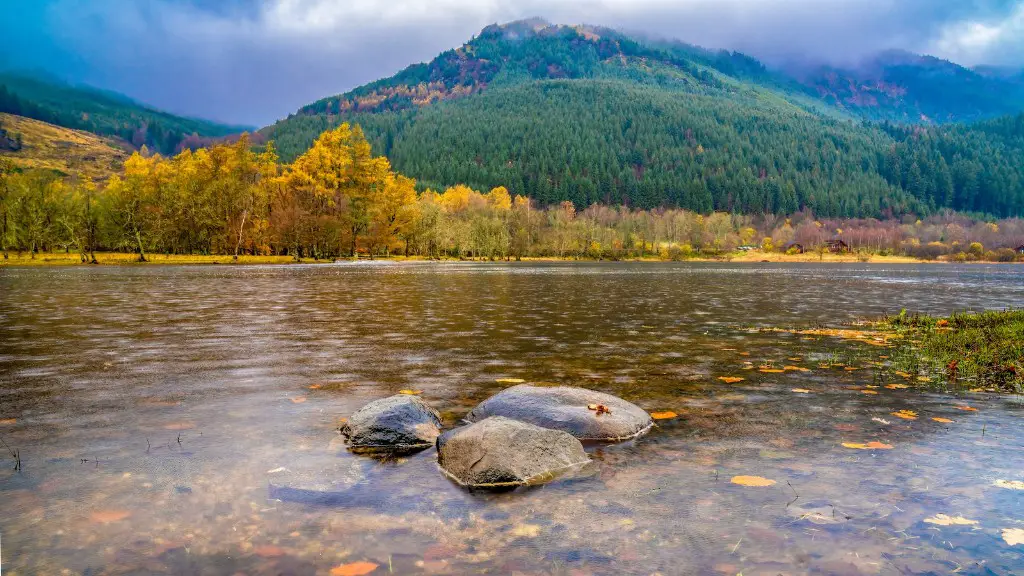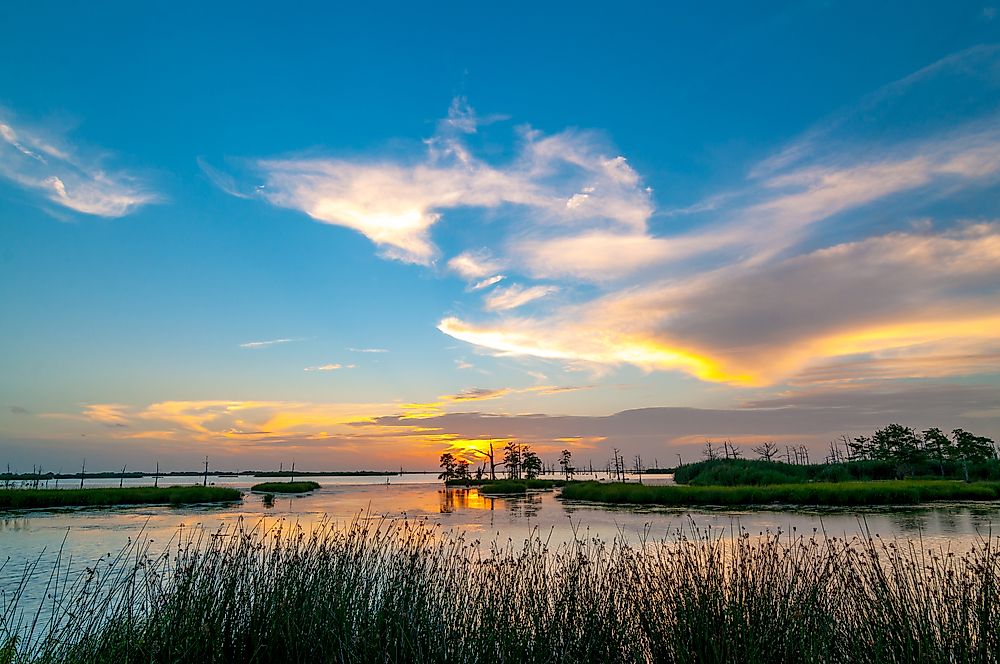The Mississippi River in Louisiana: A Vital Lifeline and Defining Landscape
Related Articles: The Mississippi River in Louisiana: A Vital Lifeline and Defining Landscape
Introduction
With great pleasure, we will explore the intriguing topic related to The Mississippi River in Louisiana: A Vital Lifeline and Defining Landscape. Let’s weave interesting information and offer fresh perspectives to the readers.
Table of Content
The Mississippi River in Louisiana: A Vital Lifeline and Defining Landscape

The Mississippi River, a colossal artery coursing through the heart of the United States, plays a pivotal role in shaping the landscape and defining the identity of Louisiana. Its journey through the state, a tapestry woven with rich history, vibrant culture, and diverse ecosystems, offers a captivating glimpse into the intricate relationship between humans and nature. This exploration delves into the multifaceted influence of the Mississippi River on Louisiana, highlighting its significance as a transportation route, a source of economic prosperity, a cultural touchstone, and a vital environmental force.
Navigating the River: A Gateway to Louisiana’s Past and Present
The Mississippi River, a ribbon of water tracing its path for over 2,300 miles, has served as a vital transportation route for centuries. It served as a lifeline for early settlers, enabling them to navigate the vast expanse of the Louisiana Territory and establish communities along its banks. From the bustling port of New Orleans, a strategic hub for trade and commerce, to the smaller river towns scattered along its course, the Mississippi River facilitated the movement of goods, people, and ideas, shaping the state’s cultural fabric and economic trajectory.
The river’s significance as a transportation artery persists even today. Barges laden with agricultural products, industrial materials, and manufactured goods navigate its waters, connecting Louisiana to the rest of the nation and beyond. The Mississippi River remains a vital conduit for commerce, contributing significantly to the state’s economy. It also serves as a crucial link for the transportation of energy resources, particularly oil and gas, extracted from the Gulf of Mexico and transported to refineries and distribution centers along the river’s course.
A Symphony of Ecosystems: The Mississippi River’s Diverse Impact
The Mississippi River’s influence extends far beyond its role as a transportation route. It acts as a lifeblood, nurturing a rich tapestry of ecosystems that contribute to Louisiana’s unique biodiversity. The river’s floodplains, a dynamic landscape shaped by periodic inundations, provide fertile ground for agriculture, supporting a thriving industry that contributes significantly to the state’s economy.
The river’s influence is also evident in the vast wetlands that fringe its banks, a critical habitat for countless species of birds, fish, and other wildlife. These wetlands, a testament to the river’s transformative power, serve as a natural buffer, mitigating the impact of storms and protecting coastal communities from erosion. However, the Mississippi River’s influence on Louisiana’s ecosystems is not without its complexities. Human activities, such as dam construction, agricultural practices, and urbanization, have altered the river’s natural flow, impacting its ecological balance and contributing to the erosion of valuable wetlands.
A Cultural Tapestry: The Mississippi River’s Enduring Legacy
The Mississippi River has deeply etched its mark on Louisiana’s culture, inspiring art, music, literature, and folklore. Its presence is reflected in the state’s vibrant culinary traditions, with dishes like crawfish boils, gumbo, and jambalaya drawing inspiration from the bounty of the river and its surrounding wetlands. The river’s rhythm, the ebb and flow of its waters, has infused the state’s music, with blues, jazz, and zydeco artists drawing on its influence.
The Mississippi River, a constant presence in the lives of Louisianans, has also inspired countless writers and artists. Its majestic beauty, the drama of its floods, and the stories of the people who live along its banks have fueled the creative imagination, giving rise to works that capture the essence of Louisiana’s spirit.
The Mississippi River: A Source of Challenges and Opportunities
Despite its enduring contributions, the Mississippi River presents challenges for Louisiana. The river’s propensity for flooding, a natural phenomenon exacerbated by human activities, poses a constant threat to communities along its banks. The river’s changing flow, influenced by upstream development and climate change, has contributed to coastal erosion and wetland loss, posing a significant threat to the state’s environmental and economic well-being.
However, the Mississippi River also presents opportunities. Its vast potential for renewable energy generation, through hydropower and solar projects, offers a path toward a more sustainable future. The river’s rich ecosystem, with its diverse flora and fauna, holds immense potential for ecotourism and recreational activities, creating opportunities for economic development while preserving the natural beauty of the state.
FAQs about the Mississippi River in Louisiana
1. What is the length of the Mississippi River in Louisiana?
The Mississippi River flows through Louisiana for approximately 400 miles, starting at the state’s northern border and continuing to its mouth at the Gulf of Mexico.
2. How does the Mississippi River impact Louisiana’s economy?
The Mississippi River plays a crucial role in Louisiana’s economy, serving as a vital transportation route for agricultural products, industrial materials, and manufactured goods. It also supports the state’s fishing industry, tourism sector, and energy production.
3. What are the environmental challenges associated with the Mississippi River in Louisiana?
The Mississippi River faces significant environmental challenges, including flooding, coastal erosion, wetland loss, and water pollution. These challenges are exacerbated by human activities, such as dam construction, agricultural practices, and urbanization.
4. What is the significance of the Mississippi River in Louisiana’s culture?
The Mississippi River has deeply influenced Louisiana’s culture, shaping its culinary traditions, music, literature, and folklore. Its presence is reflected in the state’s vibrant cuisine, its rich musical heritage, and its artistic expressions.
5. What are the future prospects for the Mississippi River in Louisiana?
The future of the Mississippi River in Louisiana is intertwined with the state’s efforts to address environmental challenges, promote sustainable development, and preserve its cultural heritage. The river’s potential for renewable energy generation, ecotourism, and recreation offers opportunities for economic growth while safeguarding its ecological integrity.
Tips for Understanding the Mississippi River in Louisiana
-
Explore the Mississippi River by boat: Take a guided tour or rent a boat to experience the river firsthand, observing its diverse ecosystems and the communities that thrive along its banks.
-
Visit a river town: Immerse yourself in Louisiana’s river culture by visiting a charming town like Natchez, Baton Rouge, or New Orleans, where the river’s influence is deeply woven into the local heritage.
-
Learn about the river’s history: Explore museums and historical sites that chronicle the Mississippi River’s role in shaping Louisiana’s past, from its early settlement to its significance in the state’s economic and cultural development.
-
Engage with local communities: Connect with residents who live along the Mississippi River to gain insights into their experiences, their relationship with the river, and the challenges they face.
-
Support organizations working to protect the river: Contribute to organizations that focus on preserving the Mississippi River’s ecosystems, mitigating the impact of flooding, and promoting sustainable management practices.
Conclusion
The Mississippi River, a majestic force of nature, has indelibly shaped Louisiana’s landscape, economy, and culture. Its significance as a transportation route, a source of economic prosperity, a cultural touchstone, and a vital environmental force continues to resonate through the state’s history, present, and future. Understanding the Mississippi River’s influence is essential for appreciating Louisiana’s unique identity, addressing the challenges it faces, and harnessing its potential for a sustainable future.
:max_bytes(150000):strip_icc()/mississippi-river-at-dawn--148562470-79f2d777aef64843a6c8fe70c7ce1cb1.jpg)


/NewOrleansLouisiana-56f5a1175f9b5829866526c4.jpg)




Closure
Thus, we hope this article has provided valuable insights into The Mississippi River in Louisiana: A Vital Lifeline and Defining Landscape. We thank you for taking the time to read this article. See you in our next article!